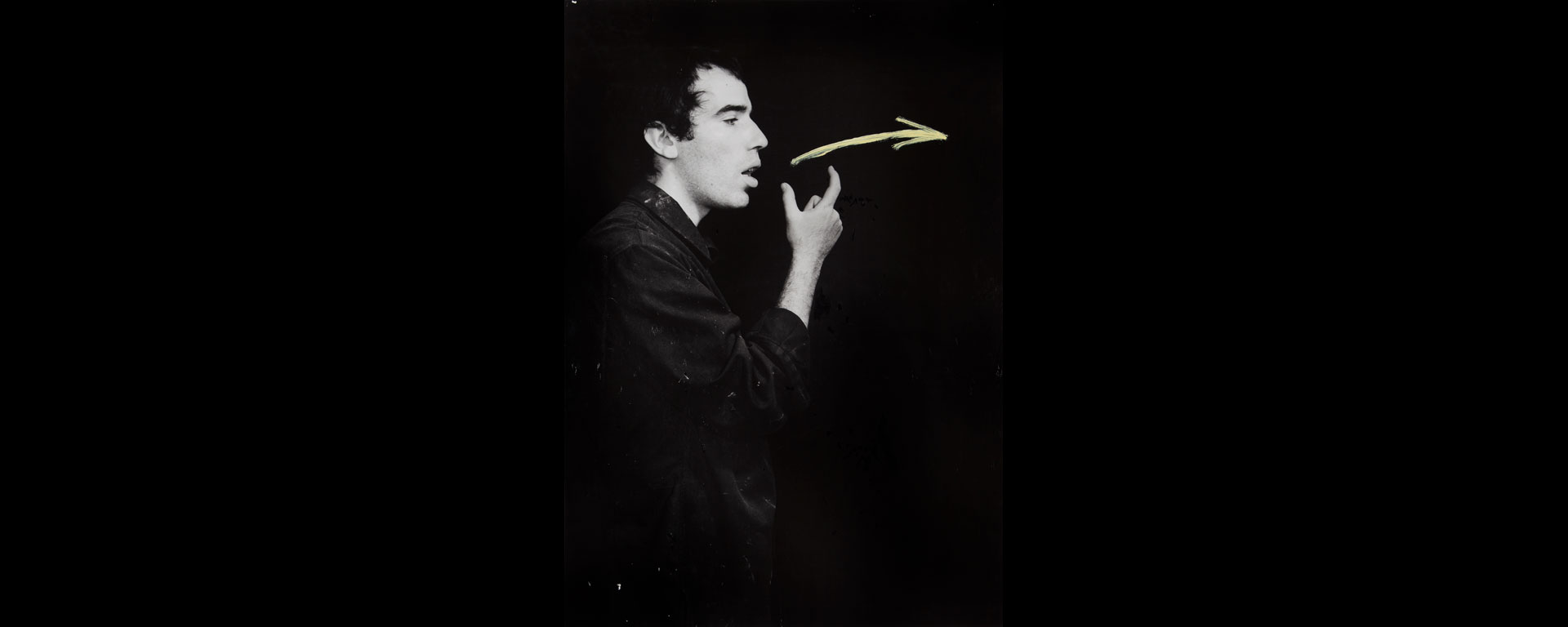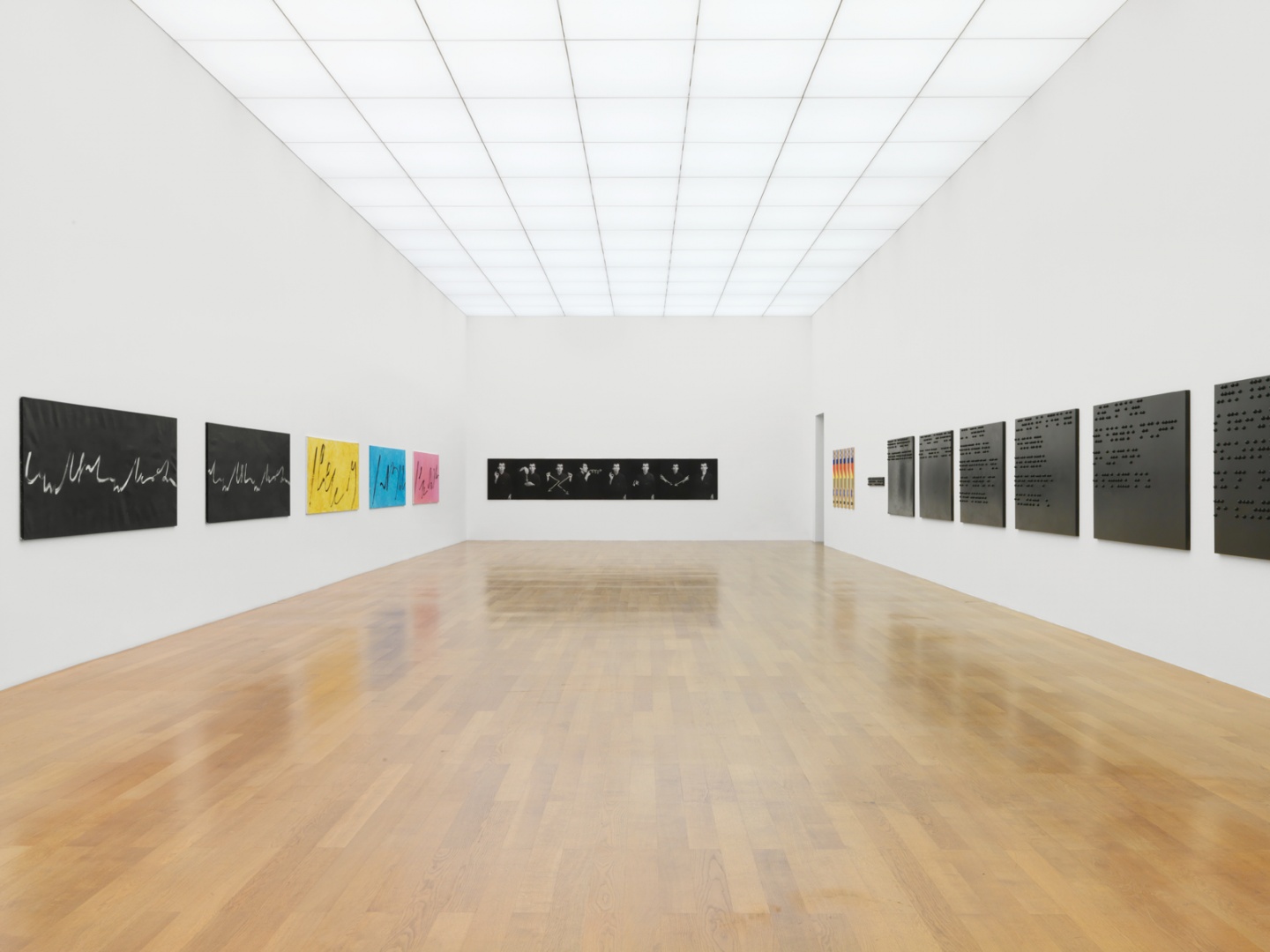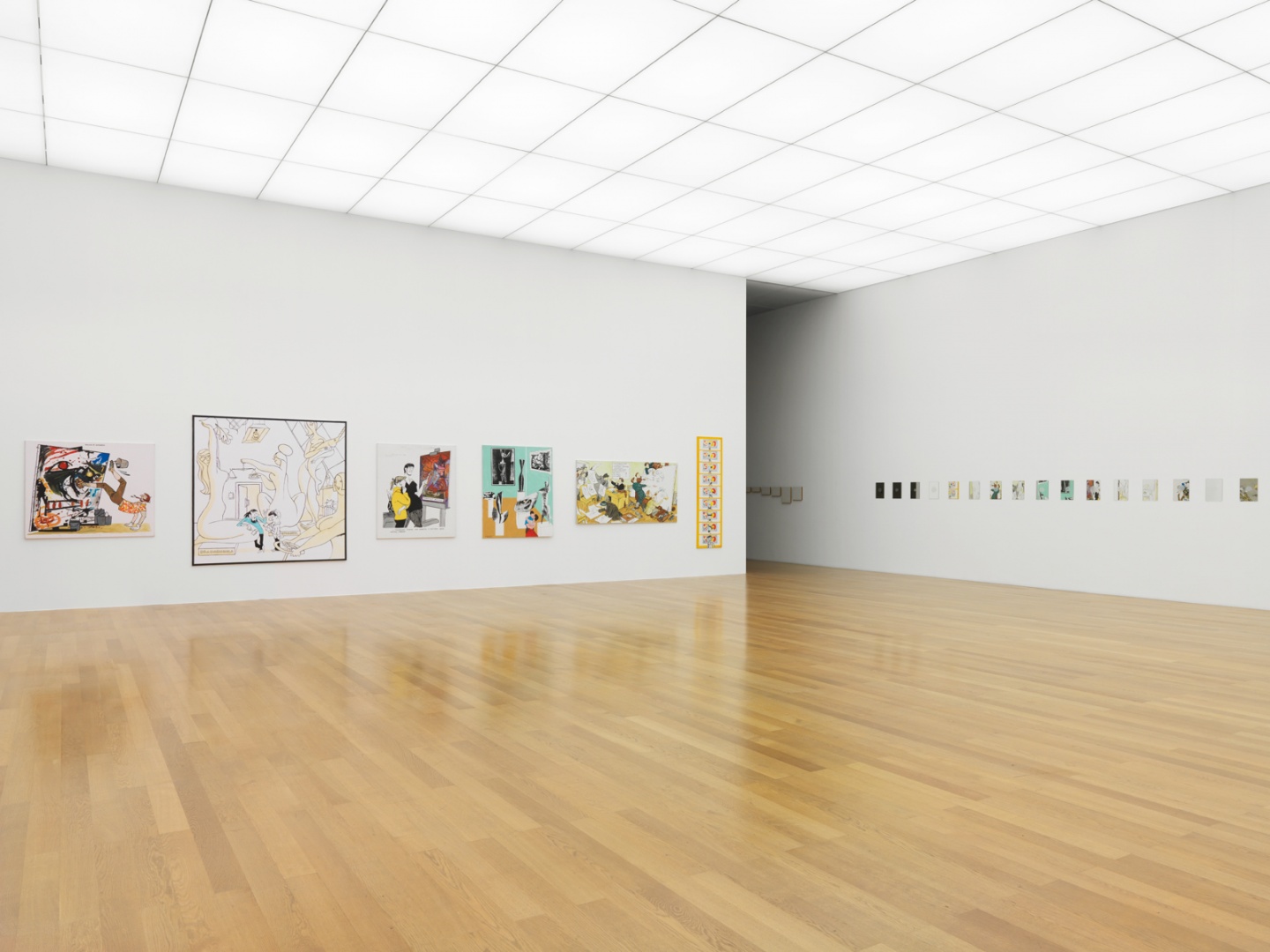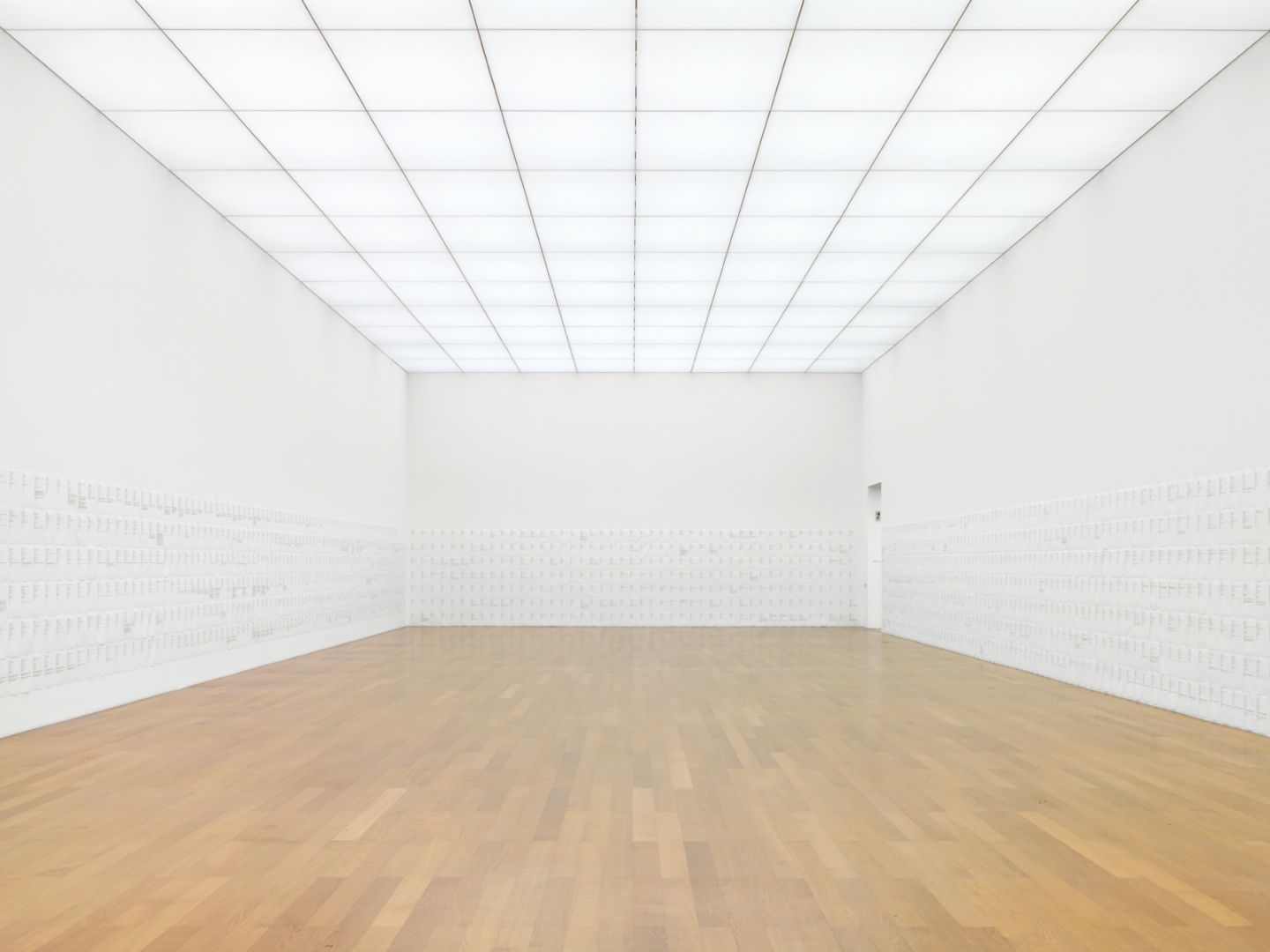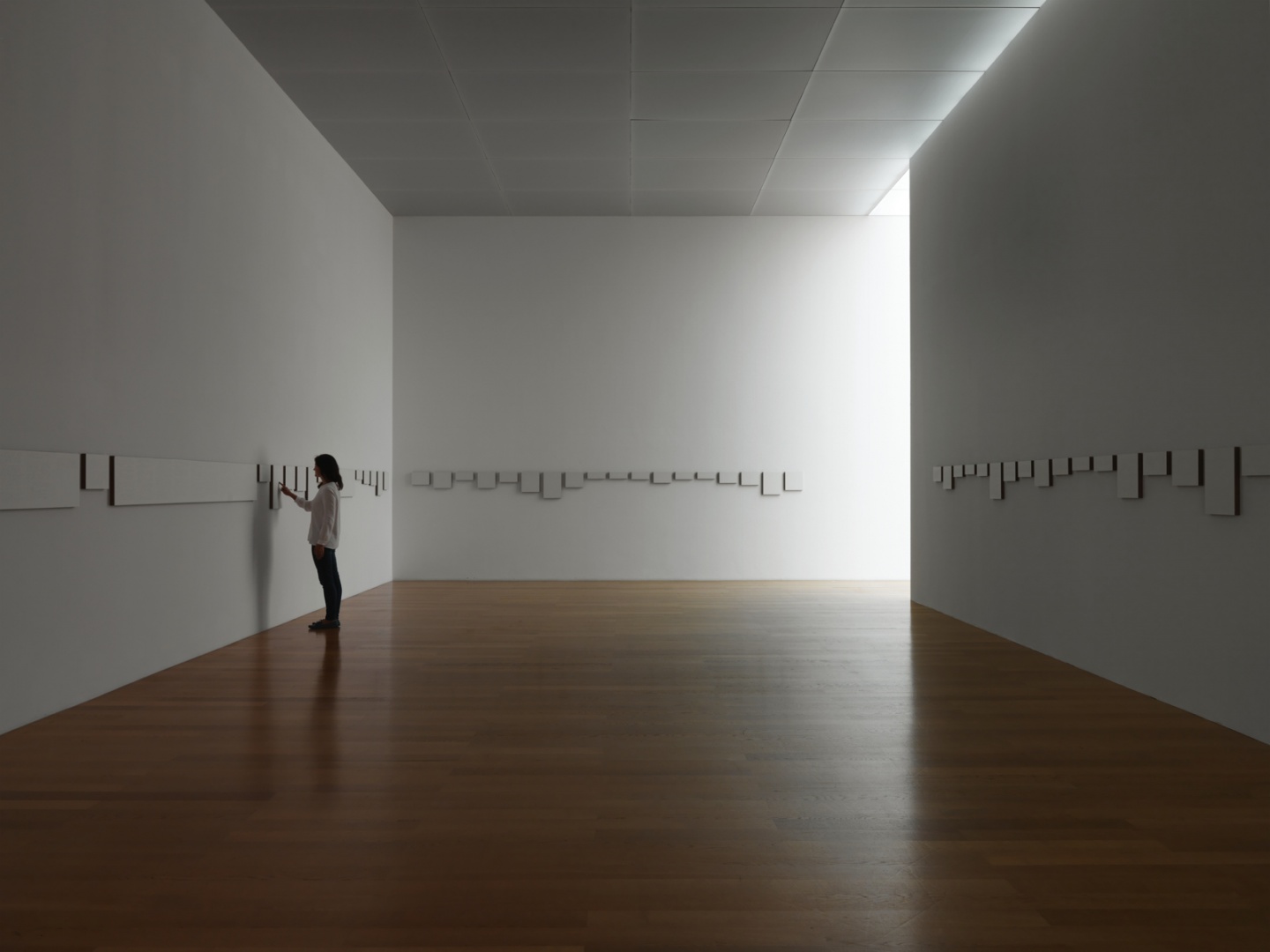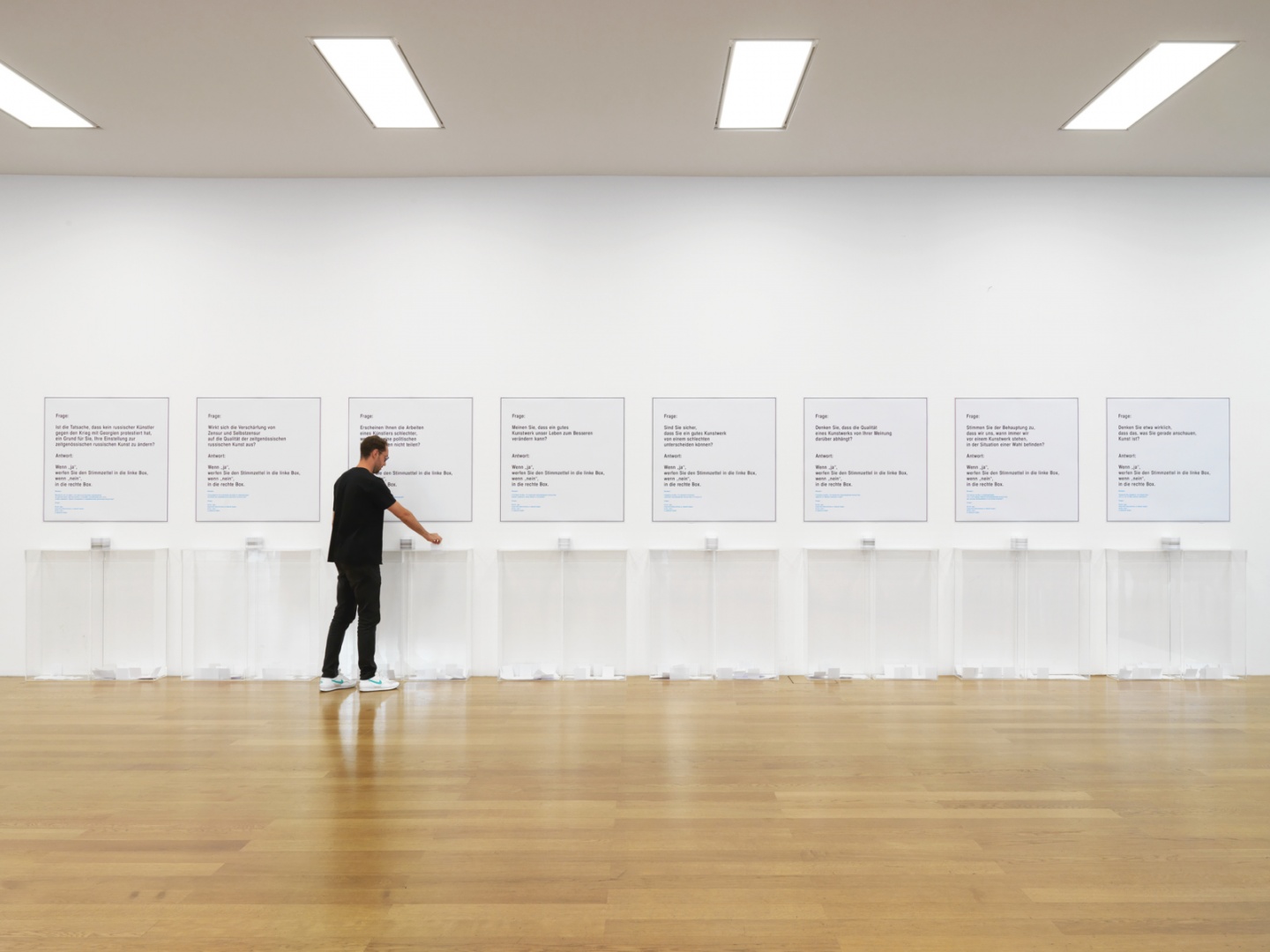"Is it possible to make an absolutely incomprehensible artwork?" — Yuri Albert
Yuri Albert is one of the most important exponents of the second generation of the Moscow Conceptualists. Excluded from the state culture industry in the 1970s and 1980s, from the official infrastructure of museums and galleries, but also from the discourses of aesthetics and art criticism, the artists themselves were forced to take on the task of presenting, commenting on and reflecting theoretically on their activities. Marked by the historical experience of self-organisation in the late Soviet milieu, Albert arrived at his critical and, at the same time, (self-)ironic reflections on the art system.
The focus of the exhibition showcasing Yuri Albert's work for the first time outside of Russia in this fullness is on the Elitist-Democratic Art series (1987–2017). In this series the artist contrasts the language of art with the languages of blind or deaf people or also the terminology of sailors and stenographers in order to analyse the individual semiotic systems and the system of art as a whole, their comprehensibility and accessibility. The museum visitor is always an interlocutor in these studies of the relationship between artwork and interpretation, image and text, visibility and invisibility, original and copy. Yuri Albert's works draw us into a dialogue with and about art, inviting us to ponder the status of art: elitist or democratic.
The exhibition conceived in close collaboration with Yuri Albert is a production of Kunstmuseum Liechtenstein in cooperation with the ERC project Performance Art in Eastern Europe (1950–1990): History and Theory (University of Zürich), curated by Sandra Frimmel.
The show will be accompanied by a publication in German, edited by Sandra Frimmel and Sabine Hänsgen. It comprises a selection of the artist's texts and a comprehensive works section.
